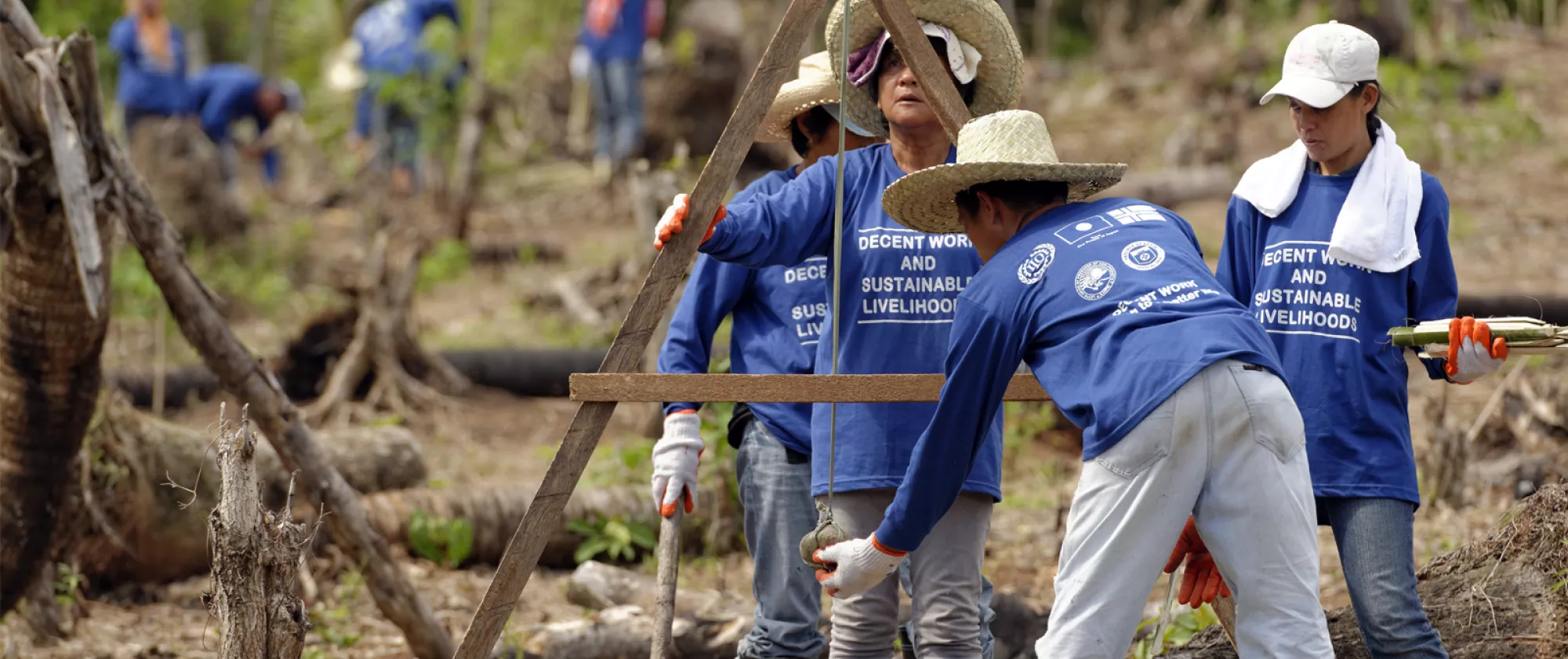
Crisis situations and response
We live in a world of worry. After decades of progress in fighting inequalities and reducing poverty, social justice and decent work face unprecedented challenges. The emergence of a global polycrisis strains the prospects for recovery and universal social justice, challenging the ILO to respond with speed, scale, and impact.
Roughly 2 billion people live in countries experiencing situations of fragility and armed violence, and another 200 million people are affected by the slow or sudden onset of disasters. Conflict and catastrophic events are triggered by a variety of factors and can impact differently on societies, but one way or another they all undermine peoples’ livelihoods and create decent work deficits.
Left unattended, these problems can lead to increased poverty, inequality and social unrest.
Through its distinctive rights-based development approach, the ILO contributes to building the resilience of nations and people caught in fragile, conflict and disaster situations.
In direct collaboration with its member States, tripartite constituents, UN partners, international and national agencies, the ILO supports an employment-centred recovery from crises while promoting decent work and social justice as key drivers of resilience and social cohesion.
Sustaining peace through employment and decent work
Promoting employment and decent work for peace and resilience
News and articles

Voices
Mon travail auprès des survivants du tremblement de terre en Türkiye donne un sens à ma vie

Notre impact, leur histoire
Après le tremblement de terre: les projets de l'OIT contribuent à la reconstruction de la Syrie
Policy areas
Disaster response
Humanitarian Development Peace Nexus
Internally Displaced Persons (IDPs)
Normative framework for crisis situations and response

Recommendation No. 205 on Employment and Decent Work for Peace and Resilience

Where we work
Occupied Palestinian Territory
War in Ukraine
Earthquakes in Türkiye and Syria
Partnerships and networks
Publications
Rapport
Vers des entreprises écologiques : Transformer les processus et les lieux de travail
Résumé
Vers des entreprises écologiques: Transformer les processus et les lieux de travail [Résumé]
Environnement Favorable aux Entreprises Durables (EESE) dans les contextes de fragilité